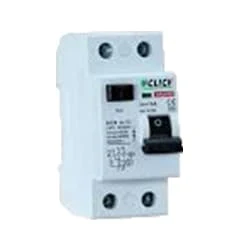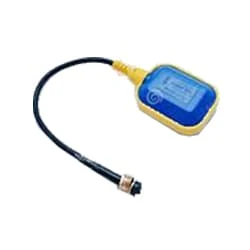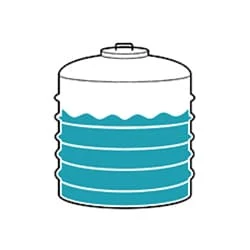Float Switch Connection diagram:
This video shows how to make a float switch connection diagram. In this circuit, we use a DP MCB ( Double Pole Minature Circuit Breaker ), an RCCB ( Residual Current Circuit Breaker ), a magnetic contactor, a selector switch, a single-phase motor, and a float switch. We need to connect all components like our circuit diagram.
Diagram of Float switch connection wiring:
Components Need for this Project:
You can get the components from any of the sites below:
- DP MCB [See Buy Click Amazon]
- RCCB [See Buy Click Amazon]
- Contactor [See Buy Click Amazon]
- Selector Switch [See Buy Click Amazon]
- Float Switch [See Buy Click Amazon]
- Water Tank [See Buy Click Amazon]
Read Also:
Components used to make the single Phase motor wiring:
01. DP MCB
 |
| Fig 2: DP MCB |
Double pole MCB can control two wires. This circuit breaker is generally used in single-phase electric lines. Double pole MCB circuit breaker input has two wires supply two wires and an output. In a single-phase line, A double-pole MCB circuit breaker is used to give good production. This circuit breaker is provided through phase and neutral circuit breaker, it is very safe. This circuit breaker is preferred for home appliances. A DP MCB usually trips for 2 reasons 1. Overload 2. Short circuit.
02. RCCB
 |
| Fig 3: RCCB |
The RCCB (Residual Current Circuit Breaker) or RCCB is an electrical protective device. A residual Current Circuit Breaker is specially designed to protect the electrical circuit against earth faults and humans from electrical shock. In this, under normal conditions the load is always connected between the phase terminal to the neutral terminal, hence the flow of the phase current is equal to the neutral current. Earth fault or fault in a power system can cause excess heating, more power consumption, burning or fire, etc. So, protection against earth leakage is very important.
03. Contactor
 |
| Fig 4: Contactor |
A magnetic contactor is an electrical device used for load control, automation, and protection. It is much like a magnetic reel. However, relays are generally used for low power and voltage, on the other hand, when we think of high power, these heavy-duty contractors only come to mind. It basically works by switching the load on and off. It has 3 terminals whose inputs are denoted as L1, L2, L3, and outputs as T1, T2, and T3. The circuit of the load is made in automation mode or protection using auxiliary contacts. It has two types of terminals. 1) Normally Open (NO). 2) Normally Closed (NC)
04. Selector Switch
 |
| Fig 5: Selector Switch |
Selector Switches Can be Rotated left, Right, or in The Center in Order to Open or Close The Electrical Contacts. The Function of a Selector Switch is To Control Devices as well as Switch Between a Minimum of Two or More Circuits. The perfect Use For a Selector Switch is When Used for Controlling an Output of a Device. Selector Switches Come as a Complete Unit Often listed as a Terminal Block Meaning the Selector Switch is a Complete Block Which Makes it Simple And easy to Install.
05. Float Switch
 |
| Fig 6: Float Switch |
Float switch The water tank can basically be controlled with this switch. It basically works like a switch. This float switch has a magnetic reed sensor. Float Switch It is a water level controller. With this, you can create interesting projects. The Float Switch is Behind the Panel at The Bottom of the Dishwasher door, directly under the float. With this float switch, you can control the water tank motor/pump motor of your house in which water is raised in the tank.
06. Water Tank
 |
| Fig 7: Water Tank |
Overhead Water Tanks are Mostly Used For Water Storage. These Tanks are available in a variety of forms and Sizes, Including Circular Water Tanks with domed tops and Conical bases, Rectangular Water Tanks, conical water tanks with flexible and rigid circular shapes, and more. The above Water Tank Maintains a relatively constant Water Pressure for all Processes. The Water Pressure is Determined by the tank’s distance from the Ground and the feeding Sequence.
Thank You for visiting the website. Keep visiting for more Updates.


Post a Comment
Do leave your comments